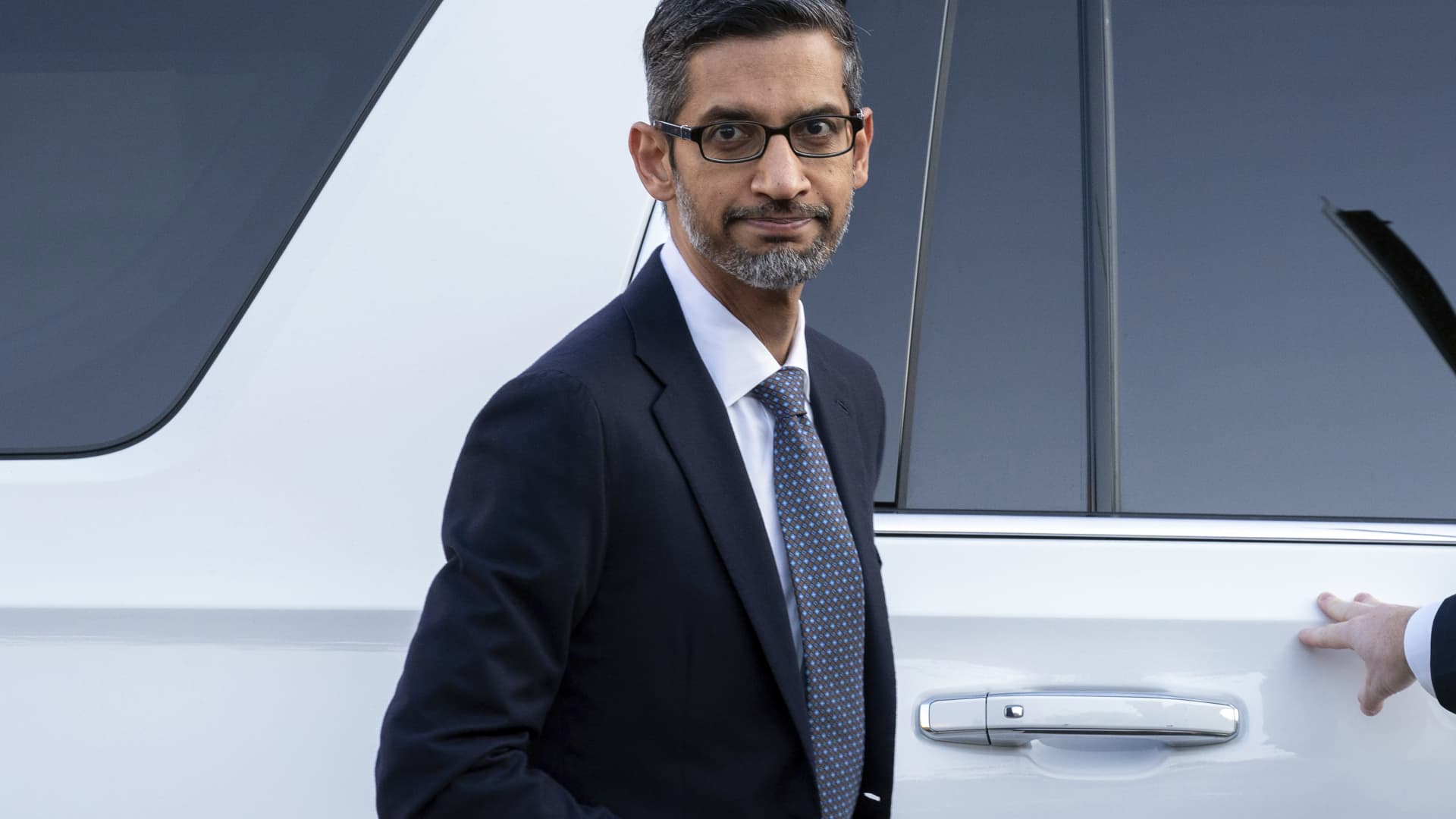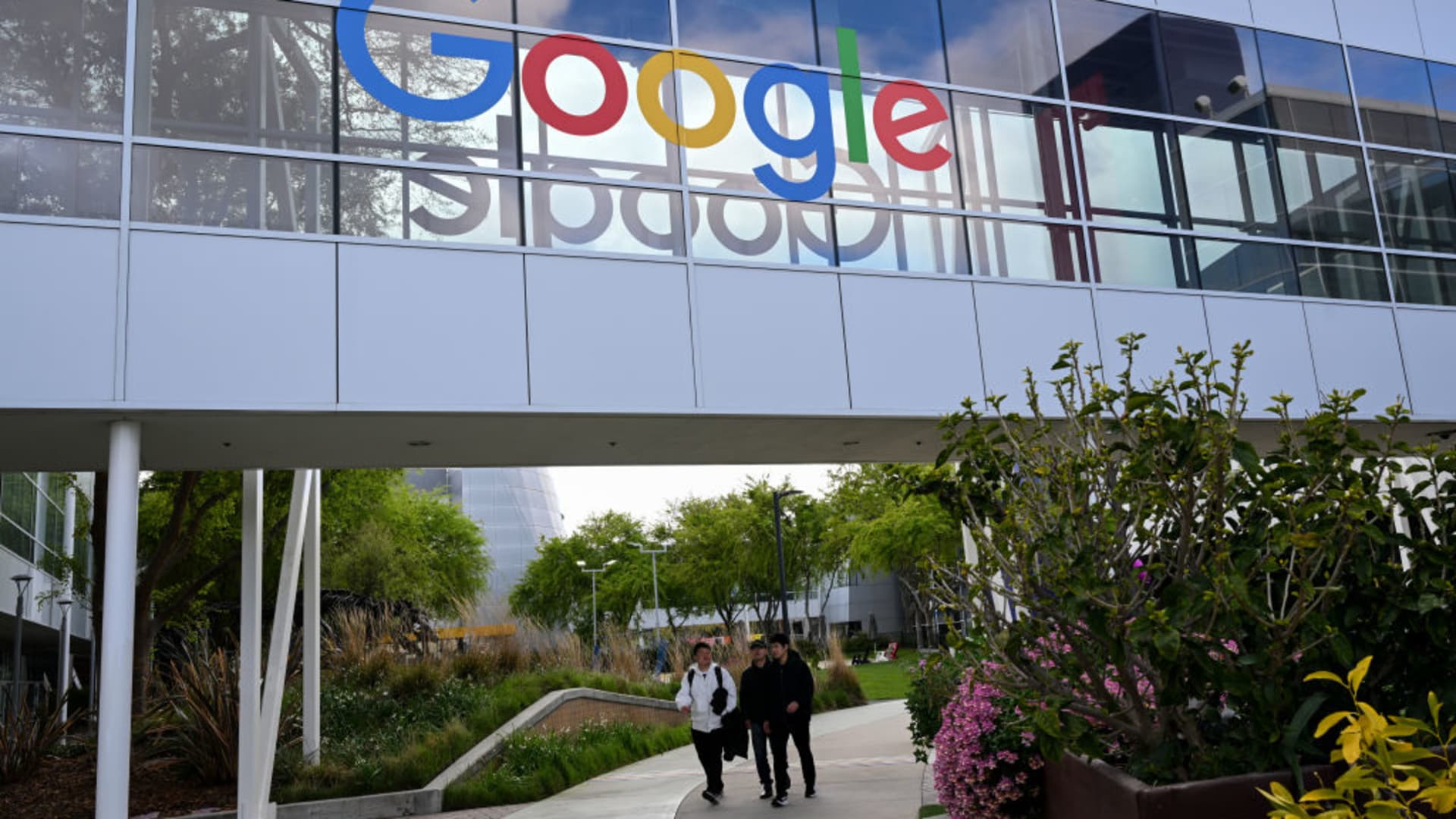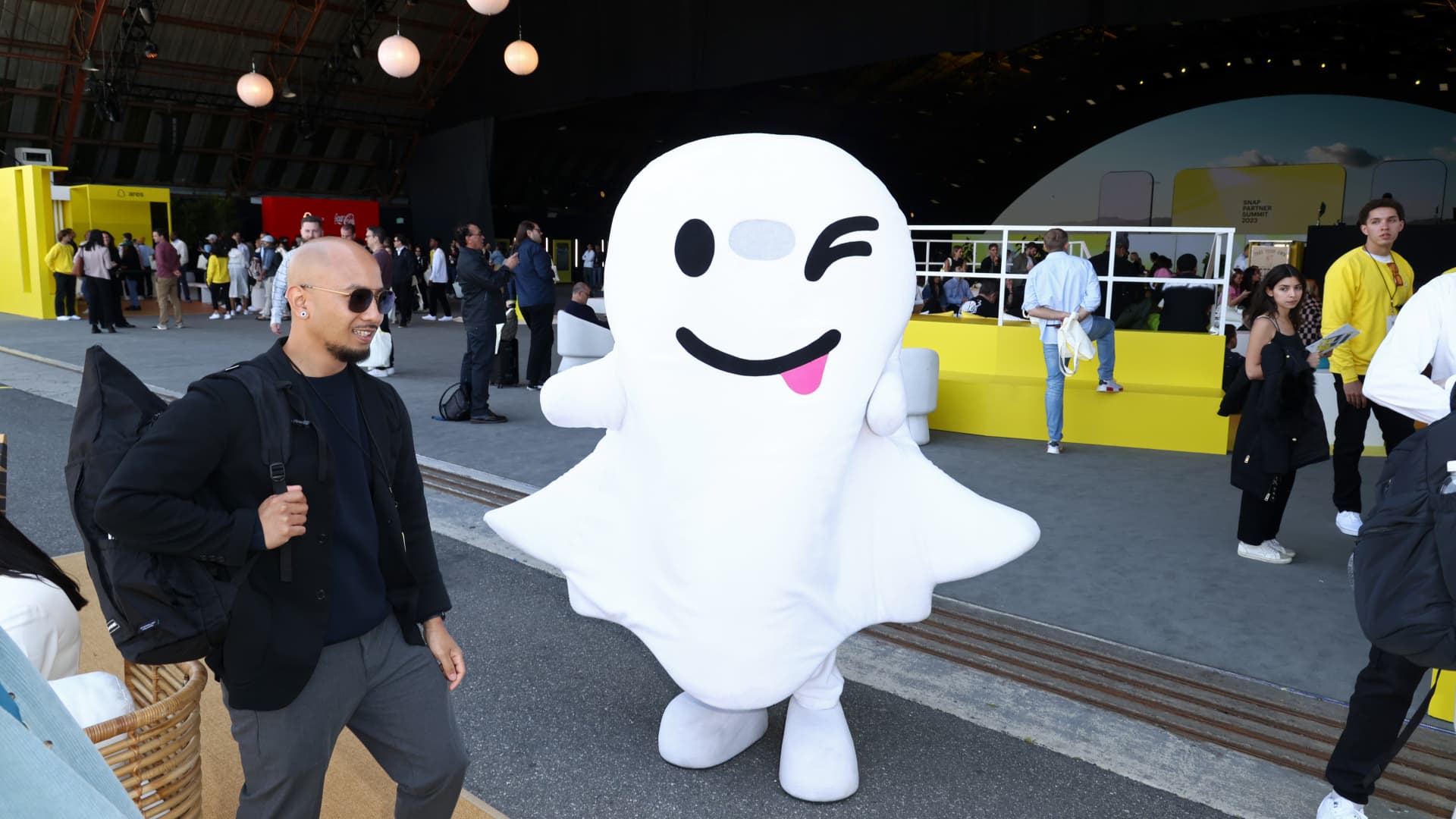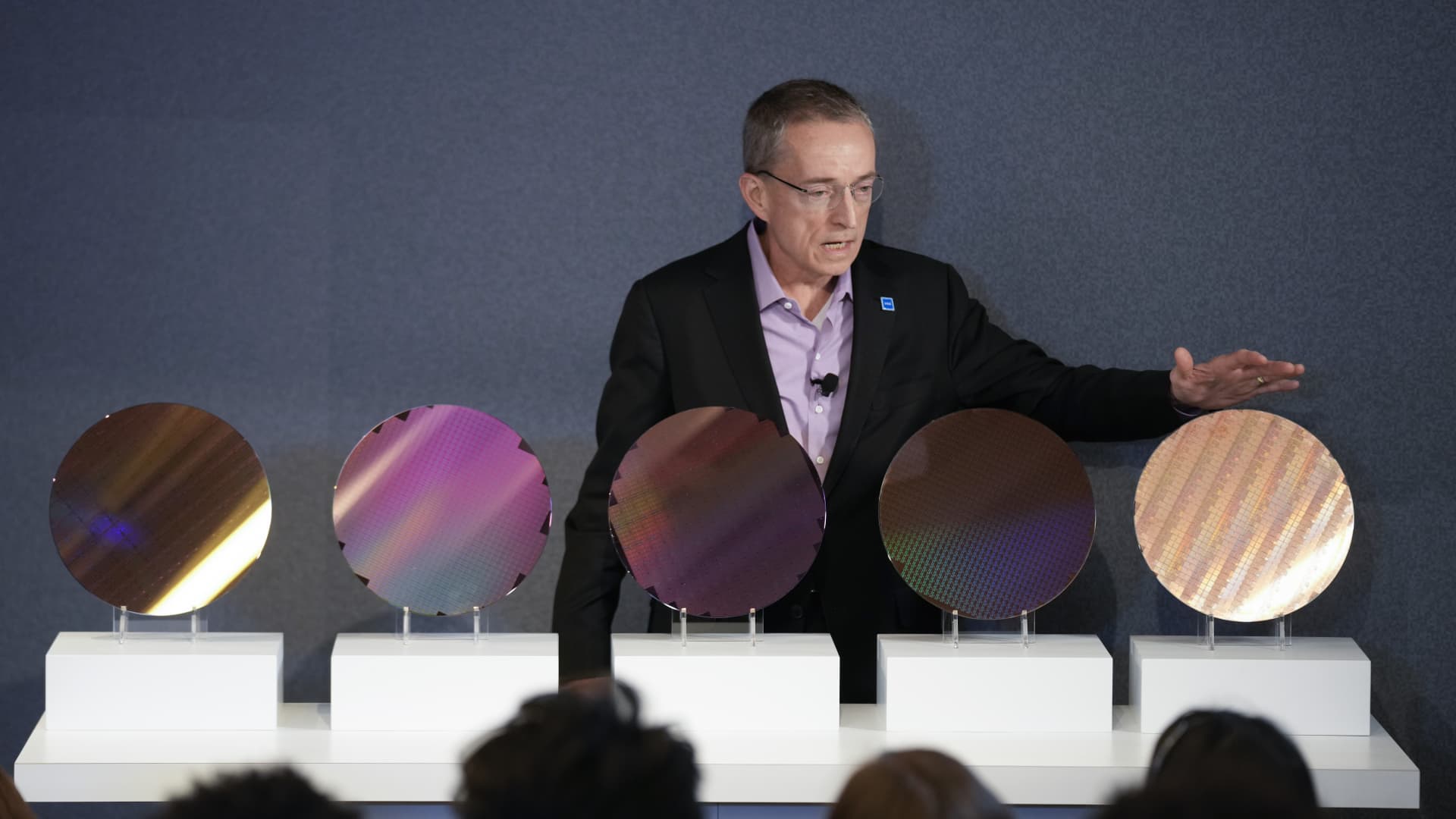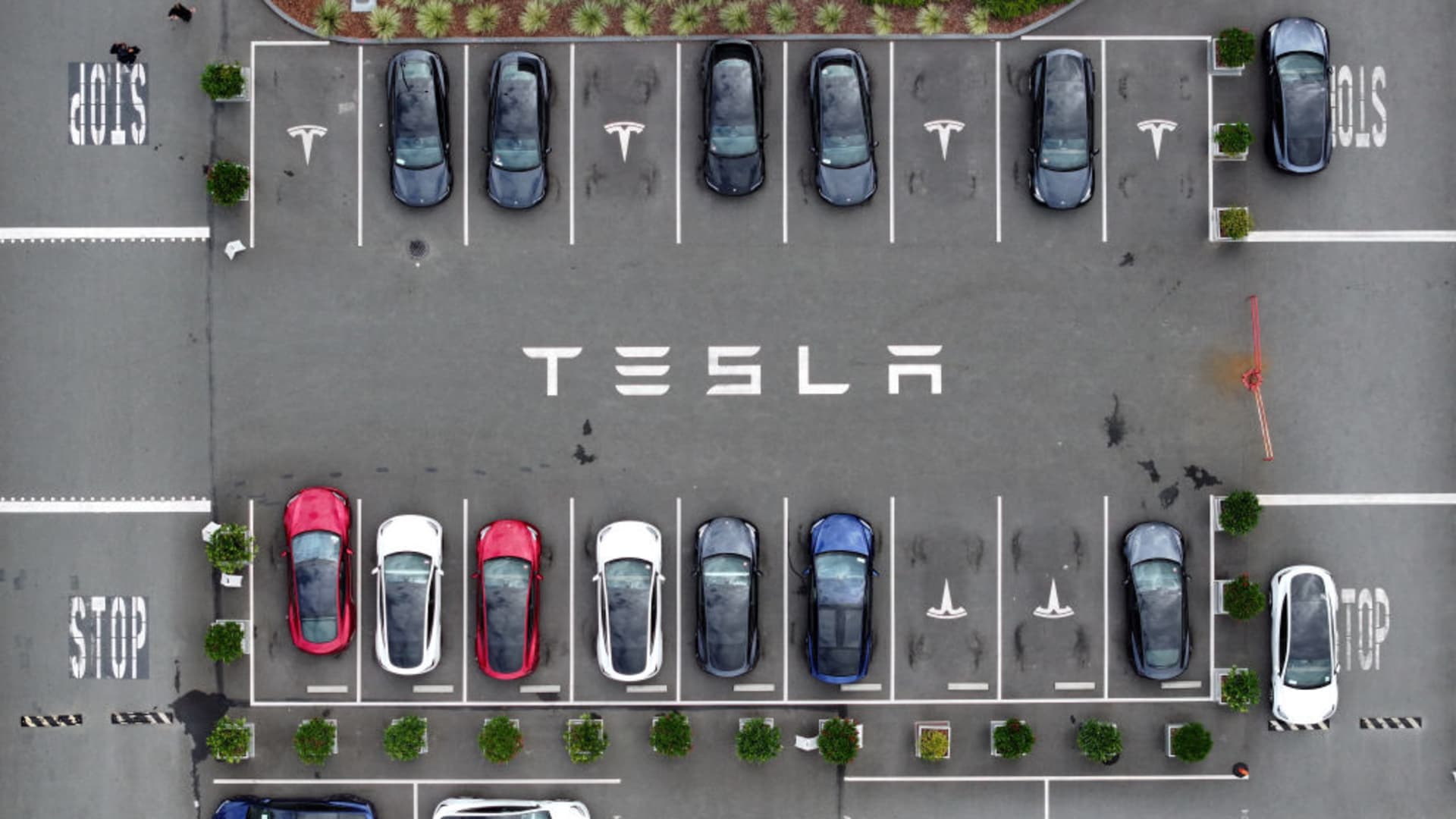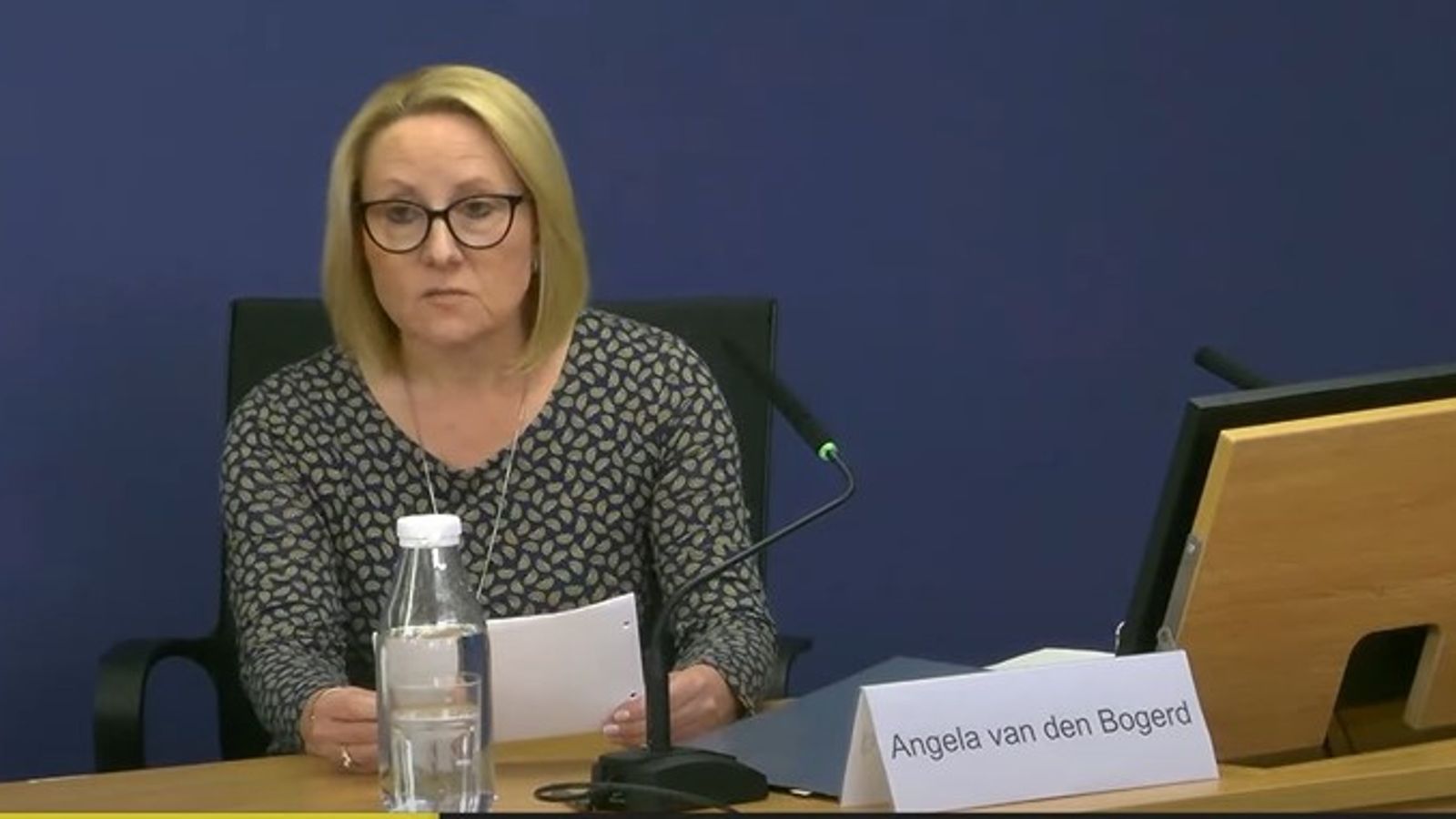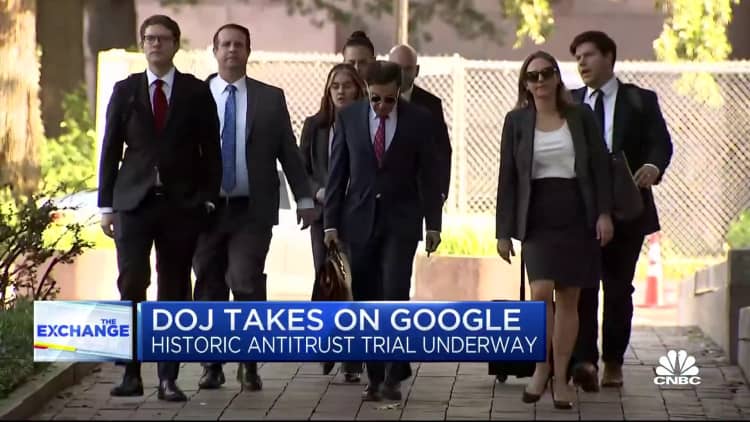
Google and Alphabet Inc. CEO Sundar Pichai arrives at the federal courthouse in Washington, Monday, Oct. 30, 2023.
Jose Luis Magana | AP
Google on Monday called its star witness to testify in its defense against the U.S. government’s antitrust challenge of its search business: CEO Sundar Pichai.
The testimony was the first opportunity for government attorneys to press Alphabet’s top executive in open court on the company’s actions to secure its dominant position in online search. The Department of Justice and a coalition of state attorneys general are seeking to prove that Google has sought to lock out rivals from key distribution channels for search through exclusive deals with phone manufacturers and web browser-makers.
For the last month and a half of the trial, the government has been working to make its case that Google’s actions violate antitrust law through illegal monopoly maintenance. The lack of competition in general search tools, the government argues, deprives consumers of improved quality and choice.
The government’s cross-examination of Pichai on Monday highlighted how Google has contended with the possibility of losing out on key distribution channels when it was a much smaller company in 2005.
Department of Justice attorney Meagan Bellshaw pressed Pichai on how Google values the default placement of its search engine on phones and web browsers. Bellshaw brought up documents from nearly two decades ago that demonstrated how Google considered the business importance of being the default search engine on browsers.
Bellshaw pointed to a 2005 letter from Google’s then-Chief Legal Officer David Drummond to Microsoft’s then-General Counsel Brad Smith regarding Microsoft’s newest version of its Internet Explorer browser. In that version, IE7, Microsoft planned to build search into its toolbar, so users did not need to download separate extensions to search from the toolbar. The search engine for that module would be determined by whatever users picked in the previous version of IE.
Google expressed concern at the time that the setting to change the search engine on IE was hidden. Pichai testified that to his knowledge, “not a single user” used the IE setting in the earlier version of the browser to change the search engine from Microsoft’s.
In the email to Smith in 2005, Drummond said that “Microsoft’s approach puts its own interests above those of end users.”
Drummond added, “As you know, most end users do not change defaults.”
That line hits at a key element of the government’s argument: that while it may be possible for users to switch their search engine on the Safari browser on the iPhone, for example, few actually do. Pichai said Drummond’s statement was specific to the way Microsoft was implementing defaults on its browser.
“By pushing out an update of IE with a new search box that will default to Microsoft’s own search product in the vast majority of cases, Microsoft would gain a large number of search users for reasons having nothing to do with the merits of Microsoft’s search offering,” Drummond wrote at the time.
Google had “proposed instead that users be prompted to select the default search provider the first time they use the inline search feature,” Drummond wrote in the 2005 letter.
Pichai said the request reflected what Google saw as “a unique egregious case of how they were not honoring user preference at all,” because it didn’t reflect how users actually engaged with search engines.
Bellshaw contrasted the request with Google’s approach to choice screens under its own revenue-sharing contracts with phone manufacturers.
Pichai testified that Google does not prohibit choice screens, but conceded that for phone manufacturers who agree to the revenue sharing agreement (RSA), providing a choice screen for the search engine would not be consistent with the agreement. He said that when doing a commercial deal like the RSA, “we are paying for enhanced promotion.” He added that phone manufacturers “have the option not to take the RSA.”
Later, Bellshaw showed a 2007 presentation from a Google employee who helped negotiate revenue-sharing deals. One slide said that “What Apple wants” is for Google to be one of two search provider options. Pichai said this was specifically for a version of Safari on PCs.
Notes from a 2007 meeting showed that Google was aware of the power of defaults. According to those notes, someone asked how much of a difference default status makes. The answer: “Typically 75% take rate. Defaults have strong impact.”
Relationship between Google and Apple
Pichai worried about losing employees to competitors, including Apple, the DOJ argued.
Bellshaw presented a 2019 email from Pichai, which the CEO said summarized another executive’s concerns with recent turnover. Pichai asked for “monthly reports of all losses to key competitors on an ongoing basis.” But if anyone from the search team went to Apple, he asked to be notified for each case.
Pichai said he wasn’t sure if he’d actually received those reports.
Bellshaw also tried to press Pichai on Google’s close relationship with Apple when it came to their search deal, while they competed in other realms like the smartphone market.
In notes from a 2018 meeting that included Pichai and Apple CEO Tim Cook, a Google executive recounted that Google expressed, “Our vision is that we work as if we are one company.” Pichai testified that he did not recall saying that line. He added that coming out of that meeting, during which Apple wanted to discuss concerns about revenue growth deceleration on Safari under their existing deal, “there was some what I would call irrational exuberance.”
In 2021, Pichai approved an extension of the 2016 deal with Apple.
On Friday, the court learned that Google paid $26.3 billion in 2021 to be the default search engine on mobile phones and web browsers. That number includes how much it pays to Apple, as well as other companies.
Deleted chats
The DOJ also addressed Google’s policy of not automatically retaining internal chat messages, despite being subject to a litigation hold. In February, the DOJ alleged that Google “systematically destroyed” instant message chats through its history-off option that allowed them to be deleted every 24 hours unless a user manually changed the setting.
Pichai acknowledged he was aware of the history-off default for chat that persisted until February and that he had taken action to change that.
Bellshaw pointed to a message exchange where Pichai asked for history to be turned off in a group chat in 2021. Pichai testified that he did so to discuss a personnel matter, along the lines of who would be a good speaker at an event. It was not something even “remotely” close to something covered by the litigation hold, he said.
“I take great care to comply with all litigation holds,” Pichai testified.
Bellshaw also asked if Pichai would mark documents or messages as attorney-client privileged and copy Google’s Chief Legal Officer Kent Walker, even when he wasn’t explicitly seeking legal advice. Pichai said no.
Bellshaw pointed to Pichai’s 2022 deposition, where he conceded it was possible that on occasion he accidentally included Walker and asked for advice, when he was really seeking to mark something as confidential.
Bellshaw also returned to the earlier letter Drummond sent to Smith in 2005 about IE7. In the letter, Drummond said legal action was a “foreseeable possibility” and asked Microsoft to “take care to retain all past and future records relating to any plans to tie search to any Microsoft product or otherwise deprive consumers of competitive choice and search.”
WATCH: DOJ takes on Google in historic antitrust lawsuit over search dominance

